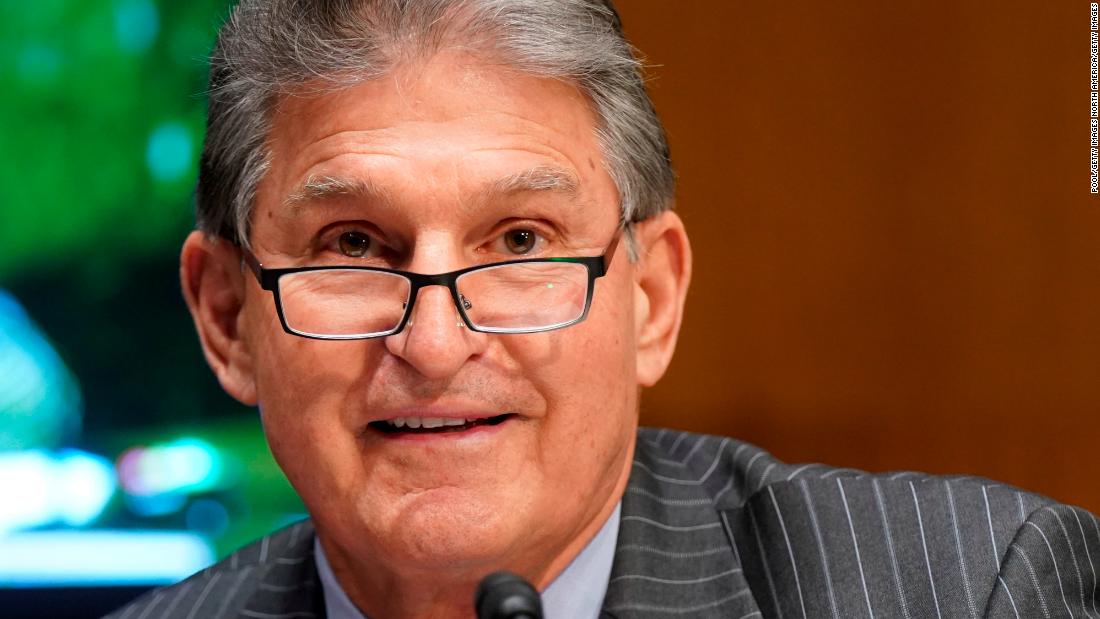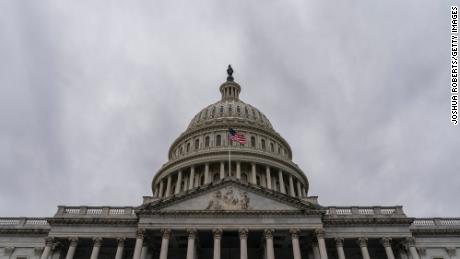Senate leaders win over key Democratic holdout as party struggles to push through Biden’s Covid relief plan
West Virginia Sen. Joe Manchin stalled President Joe Biden’s top priority in Congress after Democrats cut a deal on Friday morning without his approval, launching a furious lobbying effort for his vote.
Democrats kept the Senate open for the longest roll call vote in recent history, as Manchin signaled he would accept the Republicans’ less generous proposal.
But after a long negotiation, and with a flurry of other amendments to consider, Manchin finally agreed to extend $300 weekly unemployment benefits through September 6, about a month earlier than what Democrats had envisioned. The West Virginia Democrat also limited a provision to make the first $10,200 in benefits nontaxable apply only to households making less than $150,000.
“We have reached a compromise that enables the economy to rebound quickly while also protecting those receiving unemployment benefits from being hit with unexpected tax bills next year,” said Manchin in a statement.
White House press secretary Jen Psaki said Friday evening that Biden “supports the compromise agreement, and is grateful to all the Senators who worked so hard to reach this outcome.”
Key features of the nearly $2 trillion package include aid to small businesses, up to $1,400 stimulus checks to many Americans and funding for states and municipalities, schools and vaccine distribution.
The Senate will pass the bill after voting on a series of amendments, a process known as vote-a-rama, which could end as soon as Saturday morning. But given the changes made to the plan, it will have to go back to the House for a final vote before being sent to Biden’s desk for his signature.
Vote-a-rama underway
The Senate is now undertaking a series of politically tough amendment votes, the last major hurdle senators face before voting on the massive pandemic relief bill.
Senate Republicans introduced a number of amendments overnight that were narrowly defeated by the Democratic majority. Sen. Susan Collins of Maine pushed to replace Biden’s bill with a $650 billion version. Sen. Marco Rubio of Florida wanted to tie school funding to reopening requirements. Sen. Tim Scott of South Carolina advocated for greater transparency for state nursing home investigations.
But the GOP amendments failed, along with one by Montana Democratic Sen. Jon Tester to require Biden to approve the Keystone XL pipeline, which he recently blocked.
The first, extraordinarily long amendment vote — on a measure to raise the minimum wage to $15 a hour, introduced by Vermont Sen. Bernie Sanders — was an early test of party unity.
Eight senators in the Democratic conference — Manchin, Tester, Kyrsten Sinema of Arizona, Angus King of Maine, Jeanne Shaheen and Maggie Hassan of New Hampshire, and Chris Coons and Tom Carper of Delaware — opposed the minimum wage amendment, along with every Republican senator.
The measure failed with the gavel finally going down on the first amendment vote of the vote-a-rama, 11 hours and 50 minutes after it began, making it the longest roll call vote in recent Senate history. The Democratic negotiations over the unemployment benefits had held up the marathon vote series, keeping the vote open for an extended period of time.
Democrats then rejected a Republican motion to adjourn late Friday, banking that Republicans will grow weary and won’t offer as many amendments.
Early Saturday, the Senate adopted Ohio Republican Sen. Rob Portman’s plan to extend weekly jobless benefits at $300 through July 18.
Manchin also voted for the GOP proposal, but the Democrats’ alternative plan, which was adopted early Saturday morning, will supersede the Portman amendment.
Senate Majority Leader Chuck Schumer, a New York Democrat, criticized Republican tactics to slow down the process and on Friday thanked the Senate floor staff for the nearly 11 hours of reading the bill, calling them “the unsung heroes of this place.”
The Democratic-controlled House passed the legislation at the end of last month, along with an increase in the minimum wage. But the Senate parliamentarian ruled that the wage hike could not be included in the Senate’s version of the bill under reconciliation. That change and others, including the alterations to jobless benefits, will force the House to vote again on the legislation, which is expected to happen next week.
This story and headline have been updated with additional developments Saturday.
CNN’s Ali Zaslav, Annie Grayer, Lauren Fox, Ryan Nobles and Morgan Rimmer contributed to this report.
![]()




